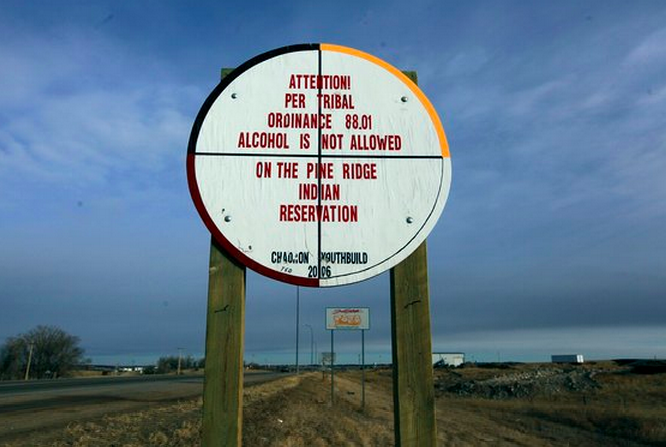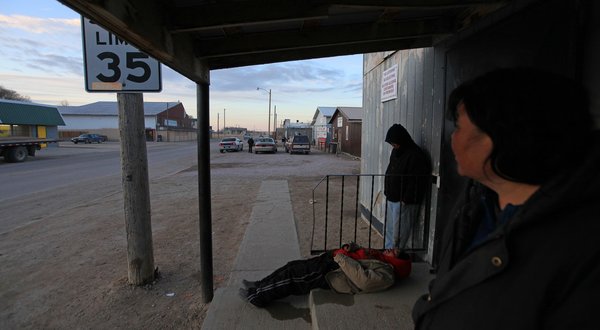Alcohol Problems on Pine Ridge: Just How Much Does A-B InBev "Care"?
 In February 2012, the Oglala Sioux Tribe filed a lawsuit against Anheuser-Busch InBev (ABI), SABMiller, Molson Coors, MillerCoors LLC, and Pabst, alleging that they knowingly contributed to devastating alcohol-related problems on the Pine Ridge Indian Reservation in South Dakota. On the reservation, as many as two-thirds of adults may be alcoholics, and one of out four children is born with fetal alcohol syndrome. The Oglala Sioux Tribe has prohibited alcohol on the reservation for the last 180 years. Yet the alcohol continues to get funneled right into the hands--and lives--of tribal members, and ABI is giving a standard denial for playing any role in the resulting harm.
In February 2012, the Oglala Sioux Tribe filed a lawsuit against Anheuser-Busch InBev (ABI), SABMiller, Molson Coors, MillerCoors LLC, and Pabst, alleging that they knowingly contributed to devastating alcohol-related problems on the Pine Ridge Indian Reservation in South Dakota. On the reservation, as many as two-thirds of adults may be alcoholics, and one of out four children is born with fetal alcohol syndrome. The Oglala Sioux Tribe has prohibited alcohol on the reservation for the last 180 years. Yet the alcohol continues to get funneled right into the hands--and lives--of tribal members, and ABI is giving a standard denial for playing any role in the resulting harm.Just outside the reservation’s borders, the tiny town of Whiteclay, Nebraska (pop. 10) sells more than 4 million cans of beer and malt liquor annually. The town seems to exist solely to sell alcohol to Pine Ridge residents. Alcohol (including ABI brands such as Hurricane malt liquor and Budweiser) is either smuggled into the reservation, or simply consumed on the streets of Whiteclay. When New York Times columnist Nicholas Kristoff visited recently, he witnessed “men and women staggering on the street, or passed out, whispers of girls traded for alcohol.”
Kristoff's visit to Pine Ridge and Whiteclay, combined with his knowledge of the industry’s tactics, led him to declare that “Pine Ridge’s alcohol problem is matched only by Anheuser-Busch’s greed problem. Brewers market beers with bucolic country scenes, but the image I now associate with Budweiser is of a child with fetal alcohol syndrome.” He declared a personal boycott on A-B InBev’s beers and asked other Americans to do the same.
 Despite refusing the comment for months while Kristoff was writing his column, ABI hit back immediately after it was published with a pat letter to the editor in which they claimed to “care about the tragic problems of tribal members on the Pine Ridge Indian Reservation and [be] greatly concerned about alcohol abuse there and anywhere.” Not surprisingly, ABI denied any responsibility for the gross overabundance and availability of its products in Whiteclay and the nearby reservation.
Despite refusing the comment for months while Kristoff was writing his column, ABI hit back immediately after it was published with a pat letter to the editor in which they claimed to “care about the tragic problems of tribal members on the Pine Ridge Indian Reservation and [be] greatly concerned about alcohol abuse there and anywhere.” Not surprisingly, ABI denied any responsibility for the gross overabundance and availability of its products in Whiteclay and the nearby reservation. If they really cared about the harm their products cause the Sioux Oglala tribe, ABI--and the other alcohol producers--would stop selling their products in Whiteclay. Instead, per usual, ABI is raking in the profits while denying any responsibility for the repercussions.